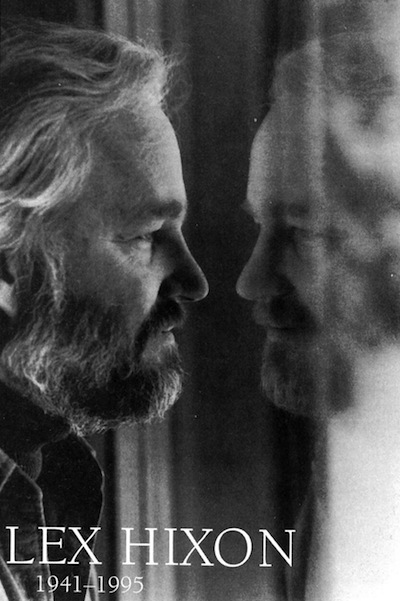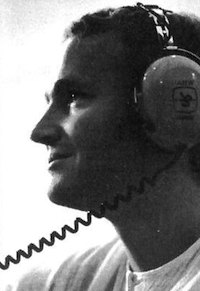The awakened mind has never come into being
and so cannot disappear or be destroyed,
nor can it be analyzed into component parts,
nor described or manipulated in any way.
The mind itself, abiding calmly as itself,
itself constitutes enlightenment,
the utmost, unspeakable delight
called omniscience by sages of Mahayana.
This enlightened knowing,
which knows all as simply itself,
is birthless and deathless:
because it never comes substantially into being,
it can never disintegrate or cease to be.
—From Lex Hixon’s poetic adaptation from Book 3 of the Gaudapada Karika which was the basis for his doctoral dissertation at Columbia University in 1976.

At the age of 22, Lex Hixon wrote a poem that includes the following lines:
all I want
inscribed on the dancing flames of my pyre:
the enigmatic phrase,
all is light
Hixon’s commitment to know that “all is light” and to affirm that understanding for himself and others inspired his extraordinary spiritual quest until his death from cancer this past November. At times, there was a startling translucence to his physical presence, and light figured into many of the spiritual names that Lex received over the years from masters of different traditions. Hixon grew up in Pasadena, California, and received a Ph.D. in World Religions from Columbia University in 1976.
His unending inquiries into the realms of the sacred were by turn wild, measured, disciplined, ecstatic, private, and public. A lineage holder in both the Zen and Sufi traditions, he studied extensively with Tibetan teachers and with Fathers of Eastern Orthodox Christianity. Among his guides and friends were rabbis, Native American elders, and the heirs of Sri Ramakrishna and Ramana Maharshi.
For thirteen years, from 1971 to 1984, Lex Hixon conducted a weekly radio show in New York City, “In the Spirit,” interviewing spiritual teachers from around the world, including Mother Teresa, the Dalai Lama, and the late Dudjom Rinpoche. Through these interviews, virtually thousands of listeners were introduced to the dharma.
His books include Great Swan: Meetings with Ramakrishna (Shambhala, 1992), Heart of the Koran (Quest, 1988), Atom from the Sun of Knowledge (Pir, 1993), Mother of the Buddhas (Quest, 1993), and Living Buddha Zen (Larson, 1995), and Coming Home: the Experience of Enlightenment (Doubleday, 1978, Larson, 1995).
Hixon was a major contributor to many Buddhist organizations, including Tricycle. Over the years, the boards of directors on which he served included The Buddhist Ray, Inc., The Zen Community of New York, Jewel Heart, and the Naropa Institute.
On December 8, a memorial service was held for Lex Hixon at the Cathedral of St. John the Divine in New York City. Yet it was during the reception following the service where the true measure of Lex was revealed, for everywhere friends and strangers were exchanging stories of the role that Lex played in changing, transforming, and enlightening their own lives. Generosity of heart is his special legacy.
Lex Hixon is survived by his parents, Mr. and Mrs. Alexander Hixon, of Pasadena, California; his wife, Sheila, of Riverdale, New York; his children, Alexandra, Dylan, India, and Shanti; two grandchildren; and two brothers.
In Mother of the Universe: Visions of the Goddess and Tantric Hymns of Enlightenment (Quest, 1994), in a poem called “Everyone Is Babbling about What Happens after Death,” Lex wrote:
The singer of this liberating song
laugh loud and long:
“We will be in the end
what we were in the beginning,
clear bubbles forming and dissolving
in the stream of timeless Mother Wisdom.”
Thank you for subscribing to Tricycle! As a nonprofit, we depend on readers like you to keep Buddhist teachings and practices widely available.